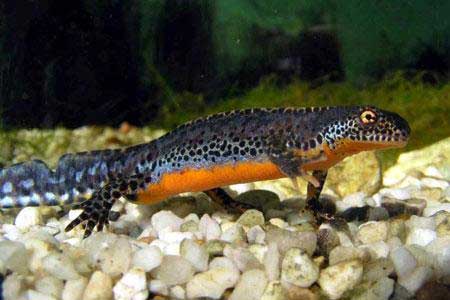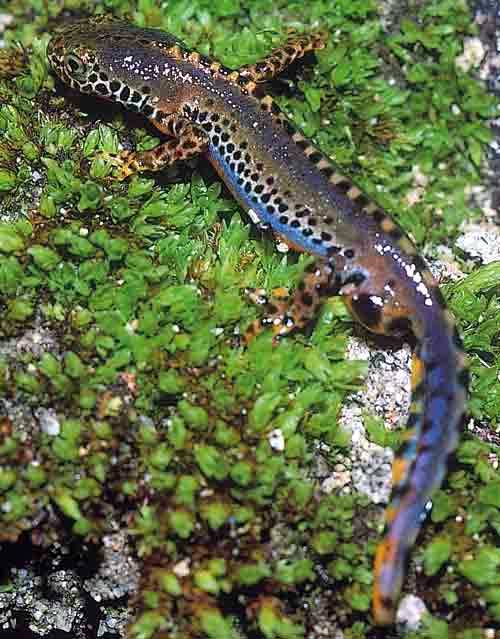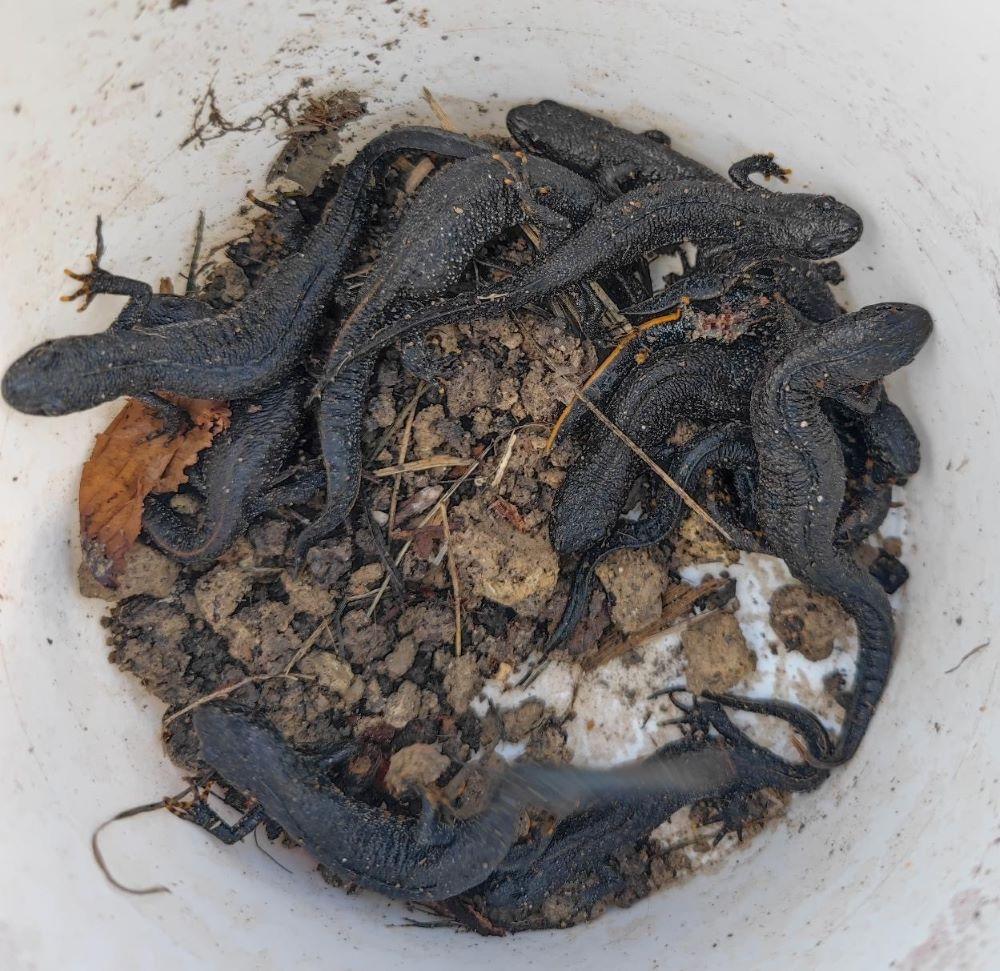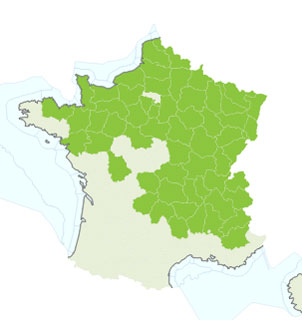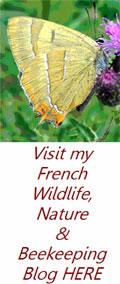Alpine Newt
Ichthyosaura, (Triturus), alpestris
Triton Alpestre
Alpine newts are a small to medium size newt,
males being 7cm to 10cm and females 8cm to 12cm, slim in appearance with a short, broad head, fingers and toes that aren't webbed. The back and body sides, which are smooth or slightly granulated, are predominantly bluish for males and predominantly greenish for females, spotted or speckled with darker marks. Male coloration is particularly vivid during the breeding season when in the aquatic phase when the male also develops a small black and yellows smooth edged crest. The belly and throat of both males and females are orange and unmarked. In terrestrial phase the coloration is more sombre, brownish grey with an orange band running from the back of the head to the tip of the tail which is not always clearly visible.
Outside of the breeding period
the adults will, as a general rule, live on land spending their time in the debris of the forest floor, hedgerows and bushy scrub. In the water their prey is mainly insects, larvae, fish eggs and aquatic worms. On land it is made up of worms, insects, spiders and beetles. Hibernation normally takes place on land under rocks, tree stumps and roots which can sometimes be very deep to avoid freezing, especially at high altitudes where it can often be the case that they stay in the water all the year. Ponds, lakes, canals and slow rivers are used, often with quite high acidity.
Reproduction commences in April
lasting until May or June. The mating ritual of the male is somewhat nonchalant and rudimentary with little contact; the spermatiphore is released by the male without requiring a positive response from the female. The female will produce in total around 250 to 300 eggs which can be single, grouped or in strings, these take about 12 days to hatch and metamorphosis normally follows in around 3 months although sometimes this is delayed until the following year. Sexual maturity occurs between 3 and 5 years with a life span that is about 10 years
Listed as vulnerable in the red list for France - they are a fully protected species.
Although locally abundant in some areas where conditions remain favourable there has been an overall decline in population especially near the edges of its distribution range or where habitat has been destroyed or disrupted.
